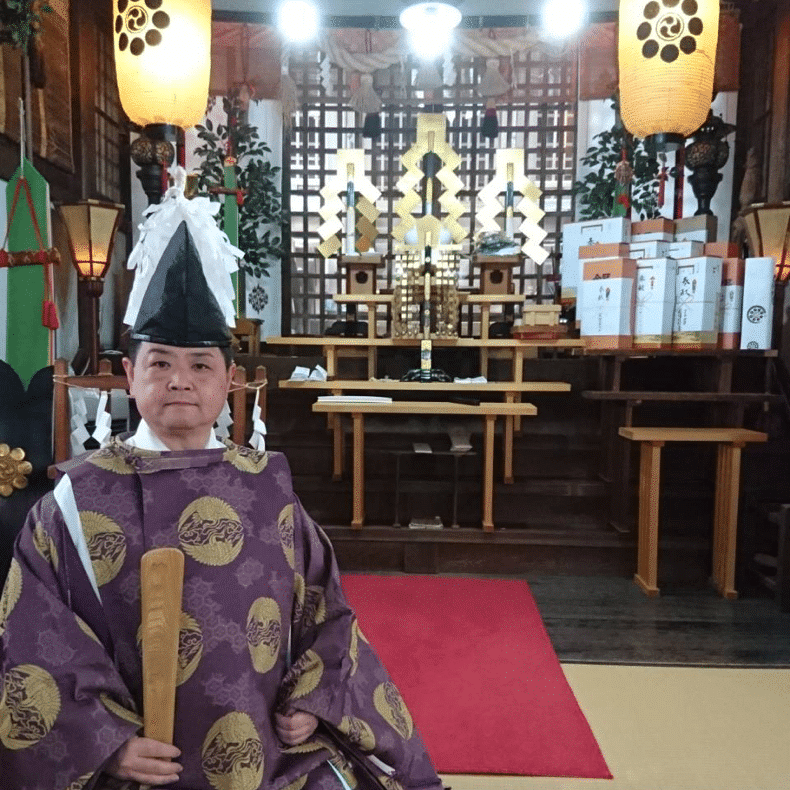Discover the Art of Kyudo. Centuries ago in Japan, archery was regarded as the highest discipline of the Samurai warrior. Then, as the bow lost its significance as a weapon of war, and under the influence of Buddhism, Shinto, Daoism and Confucianism, Japanese archery evolved into Kyudo, the “Way of the Bow”, a powerful and highly refined contemplative practice.
This practice is now taught by Kanjuro Shibata Sensei, kyudo master and the XXIst heir to the title of onyumishi, the emperors bowmaker. Kanjuro Shibata XXI Sensei is the leader of the international Zenko school, founded by his father, Shibata XX Sendai Sensei. Dechen Chöling is part of Zenko’s European branche Oko.
In the tradition of the Heki Ryu Bishu Chikurin-ha school, Kyudo is not a competitive sport and marksmanship is regarded as relatively unimportant. According to Shibata XX Sendai Sensei, the ultimate goal of Kyudo is to polish the mind.
The practice of Kyudo is deceptively simple. Students receive instruction in the basic form, “sishido”, or seven coordinations. After the initial training, practice begins by shooting at a straw target only a yumi’s length away. When a degree of proficiency is attained, the practice expands to include ”hitote” or long distance shooting at 28 meters.
Working with the precision of the form, a natural process gradually unfolds through which the practitioner has the opportunity to see the mind more clearly. The target becomes a mirror which reflects the qualities of heart and mind at the moment of the arrow’s release. This distinguishes Kyudo from archery where simply hitting the target is the goal. Kyudo is “standing meditation” and a true contemplative art. Chögyam Trungpa Rinpoche, the renowned Tibetan meditation master close friend of Shibata Sendai Sensei, said, “Through Kyudo one can learn to live beyond hope and fear“.
One is not polishing one’s shooting style or technique, but the mind. The dignity of shooting is the important point. This is how Kyudo differs from the common approach to archery. In Kyudo there is no hope. Hope is not the point. The point is that through long and genuine practice your natural dignity as a human being comes out. This natural dignity is already in you, but it is covered up by a lot of obstacles. When they are cleared away, your natural dignity is allowed to shine forth.
– Shibata Sendai Sensei.
The Kyudo path is one of self-discovery and ultimately, self-realization. Although the path may be long, there are vast rewards along the way. It all begins with the first shot.
Experience
This programme is open to both beginners and advanced students. People of all ages are able to practice Kyudo. Physical strength is not a factor. Children can begin from eight years of age on.
Thank you for indicating during the registration process if you have prior experience with Kyudo (in the field Comment at the end of the form – page 4).
Equipment
All equipment will be provided. With the help of Oko kyudojo, Dechen Chöling has recently constructed an elegant “azuchi”, a traditional Japanese structure in which the targets are placed, and a new ‘shayo’, the shooting platform.
Clothing: Kyudo traditionally is practiced in ceremonial “gi”: a white kimono jacket and black hakama trousers or skirt. Students who do not have this, are advised to practice in a white shirt, and black or dark-coloured trousers or (long) skirt.
Shinto Ceremony

To celebrate Kyudo’s 20th anniversary at Dechen Chöling, Kanjuro Shibata XXI is planning a special ceremony performed by the Japanese Shinto priest Shinji Kamimura and by Sensei himself.
The Shimbokusai is a traditional purification ceremony and awakes positive energy. It is taking place at the kami tree which was identified by Sendai Sensei XX.
It will happen in the time when the Advanced and the open program overlap.
Practical Info
Arrival day (Sunday, July 28): Intro talk at 8 pm. You’re invited to come from 4 pm in order to register and settle in your room. Dinner is served at 6.45 pm.
End of program (Saturday, August 3): Closing circle and Banquet in the evening.
Departure day (Sunday, August 4): You may leave anytime (no programme). You’re welcome to stay for lunch.
This programme is taught in English. Free translation into French or other languages needs to be confirmed. Important: translation services are possible only if you register your request at least two months in advance of the programme.
Special Rate
For Zenko and Oko members, there is a reduction of 50 € on the regular programme price displayed below (reduction proportionally decreased for the concession option).





